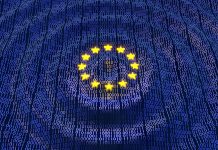May 2023 marked five years since the implementation of the General Data Protection Regulation (GDPR) across the European Union; but how does new technology continue to affect our data protection?
While the past five years may have flown by, it is incredible how much has changed in that time. From Brexit, giving the UK the opportunity to develop its own data protection regulations, to the latest technological developments, such as artificial intelligence (AI), transforming how we work, the requirements for data protection legislation are much different from five years ago.
Data protection possibilities in the UK
Since Brexit, the UK has continued to follow the GDPR. However, this could all change. The UK Government now has the opportunity to tailor legislation focused within specific market sectors, helping organisations achieve their goals where GDPR has been seen as too restrictive, preventing growth and prosperity.
The UK must ensure that any changes in legislation are approved by the EU to meet ‘adequacy’ requirements, whilst the safe transfer of data between countries will help with technology advancement and medical research. The UK Government understands the importance of protecting privacy rights to maintain the free flow of personal data across the EU.
Still, it will also consider that data protection standards vary globally and, as a result, plans to introduce a Data Protection Reform Bill will be eagerly anticipated by organisations and legal and compliance bodies alike.
Furthermore, there is a desire for the Information Commissioner’s Office (ICO) to change by implementing a board structure to ensure that it retains its ability to act independently without political direction. The ICO must be able to operate with independence to enable it to scrutinise and reprimand those that breach GDPR.
The threat at the dawn of AI
The development of internet-connected smart products – phones, TVs, self-drive cars, gaming devices, NHS healthcare and banking, to name a few – continue to feature heavily in our everyday lives. It is no surprise, therefore, that there has been an increase in ransomware attacks over the past five years.
As a result, the UK Government is seeking to raise cybersecurity standards to protect the data and privacy of individuals and organisations. Developers are responsible for ensuring appropriate security and privacy to protect users from malicious attacks.
The risks of AI must be carefully balanced against the right to privacy
The dawn of AI and its endless possibilities of innovation has created the first UK National AI Strategy. The UK is planning to be the first leading AI superpower; however, the risks of AI must be carefully balanced against the right to privacy.
With so much personal data being collected, processed, and stored, the potential risk for unauthorised access to such data and subsequent data breaches is significantly increased.
The evolution of AI managing vast quantities of data using complex algorithms increases the risk of personal data being manipulated to create fake identities for cybercriminals.
In addition, the monitoring and surveillance of facial recognition technology used in public spaces by law enforcement agencies is currently viewed as a breach of the ‘right to privacy’.
Preparing for the future of AI and cloud-based technology
As innovation in new AI and cloud-based technologies continues to grow, the appetite to attract new investors into UK technology has never been so appealing, especially with the UK racing to be the new AI super powerhouse.
As a result, new data protection legislation reform must take place to ensure the security of personal data.
Businesses can prepare to adapt to new regulations by creating an agile organisation that can transform and prosper in today’s evolving digital world.
Investing in technology and people provides this scalability and support to ensure that organisations are compliant and data is kept secure, no matter what the ever-changing world of technology has for us next!
This piece was written and provided by Vicky Withey, Head of Compliance at Node4.


























